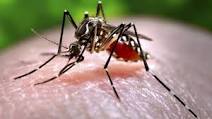About Zika Virus and Eye Health:
by Zietchick Research Institute
What is the Zika Virus? explained by Zietchick Research Institute
The Zika virus is a mosquito-borne virus carried by one kind of mosquito, the Aedes mosquito. Zika originated in central Africa and has spread to Micronesia, South America, Central America, and the United States. In the United States, most cases are in Florida and Texas, which are areas that have Aedes mosquitos, as well as in New York and California, which have many residents who have travelled to Zika-infected areas. Both global warming, which enables the Aedes mosquito to spread its range, and globalized travel could increase the range of Zika over time.

How is do humans get and spread Zika virus? Can it be prevented or treated?
Zietchick Research Institute explains that humans get Zika virus through mosquito bites by infected mosquitos. Zika can then spread human-to-human by sexual contact or by transmission from mother to fetus. It is not yet clear whether breast milk can spread Zika. Researchers studying Zika virus and eye health have found Zika virus in human tears, raising the possibility of spread through hand contact with eyes. Zika virus infection can be confirmed by blood or urine tests.
Currently there is no vaccine against or treatment for Zika virus. Doctors may treat symptoms of Zika, or try to prevent complications. Prevention of Zika infection focuses on avoiding bites by Aedes mosquitos, practicing safe sex with infected partners, hand-washing, and delaying pregnancy among Zika-infected women or women whose partners have been infected. Zietchick Research Institute recommends that you visit https://www.cdc.gov/zika/prevention/index.html for more information on how to protect you and your loved ones from Zika virus.
What are the general effects of Zika virus in humans?
Most adults infected by Zika (about 80%) do not develop symptoms. The majority of the 20% who do get sick develop flu-like symptoms that last a week to ten days. Symptoms can include fever, headache, rashes, nausea, and myalgia (muscle pain and body soreness). While most adult Zika victims experience a temporary moderate flu, some develop more serious neurological symptoms that linger.
Researchers at Zietchick Research Institute warn that Zika is most dangerous to developing fetuses, especially those infected during the first trimester of pregnancy. In ares with high-prevalence of Zika-infected mosquitoes, such as Brazil, mother-to-fetus transmission of Zika has resulted in a dramatic increase in birth defects. Zika-induced birth defects include microcephaly (small head size) --which is associated with brain and developmental disorders--neurological disorders, hearing loss, and vision impairment or other negative impacts on eye health.
What are the specific effects of Zika virus on eye health?
While they have temporary flu-like symptoms, adults with Zika may develop conjunctivitis. Conjunctivitis is swelling, itching, and redness of the eye, commonly called “pink eye.” A small percentage of adult Zika patients have more serious, lingering effects on their eye health such as chronic swelling in the retina (retinal edema) that can affect their vision.
When a fetus contracts Zika in utero (“congenital Zika”), the Zika virus can have can serious adverse consequences on the development of the eye. Many Zika-infected babies have spotted retinal pigmentation which can be seen when an eye doctor looks inside the eye with special lenses. A recent study found that about one-third of babies with congenital Zika have serious eye problems, such as breaks in the retinal tissue. Time will tell how seriously the vision of Zika babies with these symptoms is impaired, and we, at Zietchick Research Institute, encourage preventive measures to be taken to limit damage and maximize vision.
What can be done to address effects of the Zika virus on eye health?
For now, We, at Zietchick Research Institute, recommend that adults and especially babies with Zika get eye exams, and that their eye health be monitored over time. More research needs to be done on the effect of Zika virus on eye health, especially on fetal eye development. Talk to your doctor if you are worried that you or your baby’s eye health may have been affected by Zika virus.

Sources:
Catherine Saint Louis, “Study in Brazil Links Zika Virus to Eye Damage in Babies,” New York Times, 9 February 2016: https://www.nytimes.com/2016/02/10/health/study-in-brazil-links-zika-virus-to-eye-damage-in-babies.html?_r=0
Rupesh Agrawal et. al., “Zika Virus and the Eye,” Journal of Ocular Immunology and Inflammation, 20 March 2017, pp. 1-6.
U.S. Center for Disease Control, Zika Virus Homepage: https://www.cdc.gov/zika/index.html